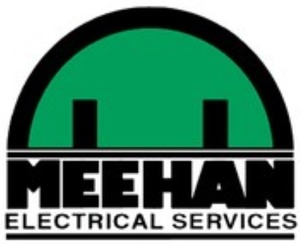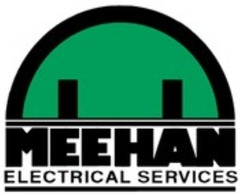Infrared Inspection Service
The Value of Infrared Panel Inspections for Homeowners
As a homeowner, maintaining the safety and efficiency of your electrical system is crucial. One often overlooked yet highly effective method for ensuring electrical safety is the use of infrared panel inspections, also known as infrared electrical inspections. These inspections utilize advanced thermal imaging cameras to detect and document issues in electrical panels and components, helping to prevent costly and dangerous problems before they escalate. In this blog, we'll explore what infrared panel inspections are, how they work, what issues they can detect, and why they're a valuable tool for homeowners.
What Are Infrared Panel Inspections?
Infrared panel inspections involve the use of specialized infrared cameras that detect heat emitted by electrical components. When an electrical system is functioning normally, the components emit a certain amount of heat that falls within a predictable range. However, when there's a malfunction, such as a loose connection or an overloaded circuit, the affected component may emit an unusual amount of heat. By capturing and analyzing these heat patterns, infrared cameras can pinpoint areas of concern in your home's electrical system.
The Purpose of Infrared Panel Inspections
The primary goal of infrared inspections is to enhance electrical safety and reduce the likelihood of costly repairs or hazardous situations. Faulty electrical components can pose significant risks, including electrical fires, equipment failures, and power outages. By identifying potential problems before they worsen, homeowners can address issues proactively and avoid the dangers and expenses associated with electrical failures.
How Infrared Inspections Work
Infrared cameras detect the infrared energy, or heat, emitted by various objects. When the camera scans an electrical panel, it creates a thermal image that displays different colors based on the heat levels detected. Warmer areas appear in bright colors (reds, oranges, and yellows), while cooler areas are displayed in darker shades (blues and purples). Excessive heat detected in an electrical component typically indicates a problem, such as a loose connection, a faulty fuse, a damaged breaker, or an overloaded circuit.
What Can Infrared Inspections Detect?
Infrared panel inspections are an effective way to detect a range of electrical issues, including:
- Loose Connections: Electrical connections that are not properly tightened can generate heat due to increased resistance, potentially leading to failures or fire hazards.
- Faulty Fuses: A defective fuse may not function properly, causing uneven heat distribution in the panel.
- Damaged Breakers: Breakers are designed to prevent circuit overloads, but when they become damaged, they can fail to trip, leading to overheating.
- Overloaded Circuits: Circuits carrying more current than they are designed for can overheat, damaging the wiring and posing a significant safety risk.
By identifying these problems early, homeowners can prevent potentially dangerous conditions and ensure their electrical systems are running smoothly.
Benefits of Infrared Panel Inspections
The advantages of using infrared panel inspections in the home go beyond safety. Here are some key benefits:
- Quick and Comprehensive Assessments: Infrared inspections allow for a large area to be inspected quickly. The thermal imaging camera can scan entire electrical panels in a matter of minutes, making it a highly efficient method for identifying potential problems.
- Proactive Maintenance: Regular infrared inspections can catch small issues before they evolve into major problems. For example, a loose connection that causes excessive heat can be tightened before it leads to an equipment failure or a fire.
- Cost Savings: Preventing electrical failures and fire hazards can save homeowners from costly repairs and potential property damage. Regular infrared inspections can also help extend the lifespan of electrical components by identifying issues that might otherwise go unnoticed.
- Reduced Downtime: For homeowners who operate home-based businesses or have important electronic equipment, minimizing electrical downtime is crucial. Infrared inspections can help keep the electrical system running reliably, avoiding unexpected outages.
How Often Should Infrared Inspections Be Conducted?
Insurance companies often mandate periodic infrared scans as a condition for coverage, especially in older homes or properties with extensive electrical systems. Typically, infrared inspections are recommended annually as part of a preventive maintenance program. This regular schedule helps ensure that any developing issues are identified and addressed before they escalate, keeping the electrical system in top shape.
What to Expect in an Infrared Inspection Report
After an inspection is completed, you will receive a detailed report that includes photos and images showing the problem areas. The report will also provide a summary of the identified issues, along with suggested repair priorities. This information allows homeowners to take immediate action on critical problems while planning for less urgent repairs.
Why Infrared Panel Inspections Are a Wise Investment for Homeowners
Infrared panel inspections provide homeowners with peace of mind by ensuring their electrical systems are safe, efficient, and up to code. By investing in these inspections as part of a routine maintenance schedule, you can avoid the risks associated with electrical failures and safeguard your home and family. If you haven't yet considered an infrared panel inspection, now may be the time to make it part of your home's electrical maintenance plan.
Protect your home, prevent problems, and save money by making infrared panel inspections a regular part of your home maintenance strategy.
Call Meehan Electrical Services For Your Infrared Electric Inspections
(706) 203-4529


